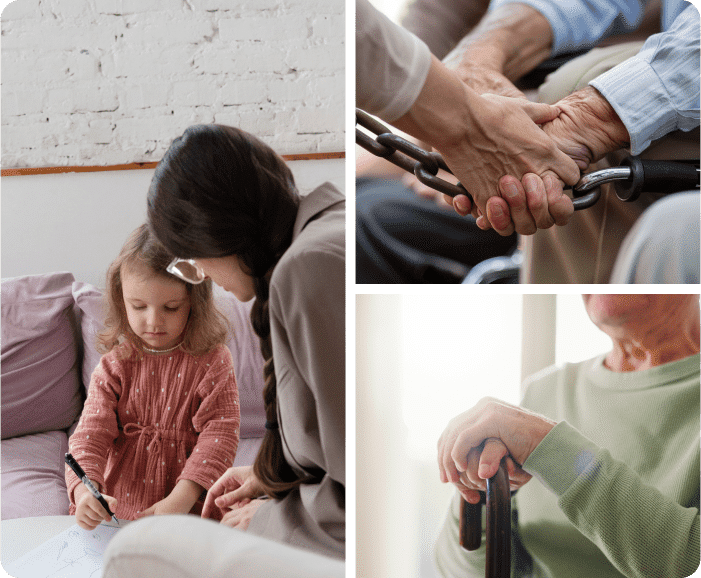Traumatic Brain Injury Services with A Source of Life Home Care LLC
Our Traumatic Brain Injury (TBI) Program operates under the Structured Family Care Program, focusing primarily on assisting with Activities of Daily Living (ADLs). Family members often play a crucial role in providing care under our guidance.
A traumatic brain injury can profoundly impact an individual’s physical abilities, cognitive functions, emotions, and overall quality of life. Understanding the complexities and long-term effects of TBIs is essential for delivering effective treatment and support. Our program is tailored to meet the unique needs of individuals recovering from TBIs, emphasizing compassionate and comprehensive care that fosters recovery, enhances the quality of life, and empowers individuals and their families to navigate the challenges associated with brain injuries.
Understanding Traumatic Brain Injuries
A TBI results from a sudden impact, such as a blow or jolt to the head, which disrupts the brain’s normal functioning. TBIs can range from mild concussions to severe brain injuries, accompanied by various symptoms, including physical impairments, cognitive difficulties, emotional shifts, and behavioral changes. The severity of the injury and the success of rehabilitation efforts determine whether a TBI leads to temporary or permanent challenges. Individuals with TBIs may experience memory loss, difficulties in concentration, speech and language problems, limited mobility, and mood fluctuations, all of which require specialized care and support.
Supporting Families and Caregivers
Caring for a loved one with a TBI can be incredibly stressful for families. At A Source of Life Home Care LLC, we recognize the importance of supporting both the individual with the TBI and their family members. Our respite care services under the Structured Family Care Program allow family caregivers the opportunity to rest and recharge, knowing their loved one is receiving quality care. Additionally, we provide education and guidance to families, helping them understand the effects of TBIs and develop effective plans to promote their loved one’s well-being and recovery.



